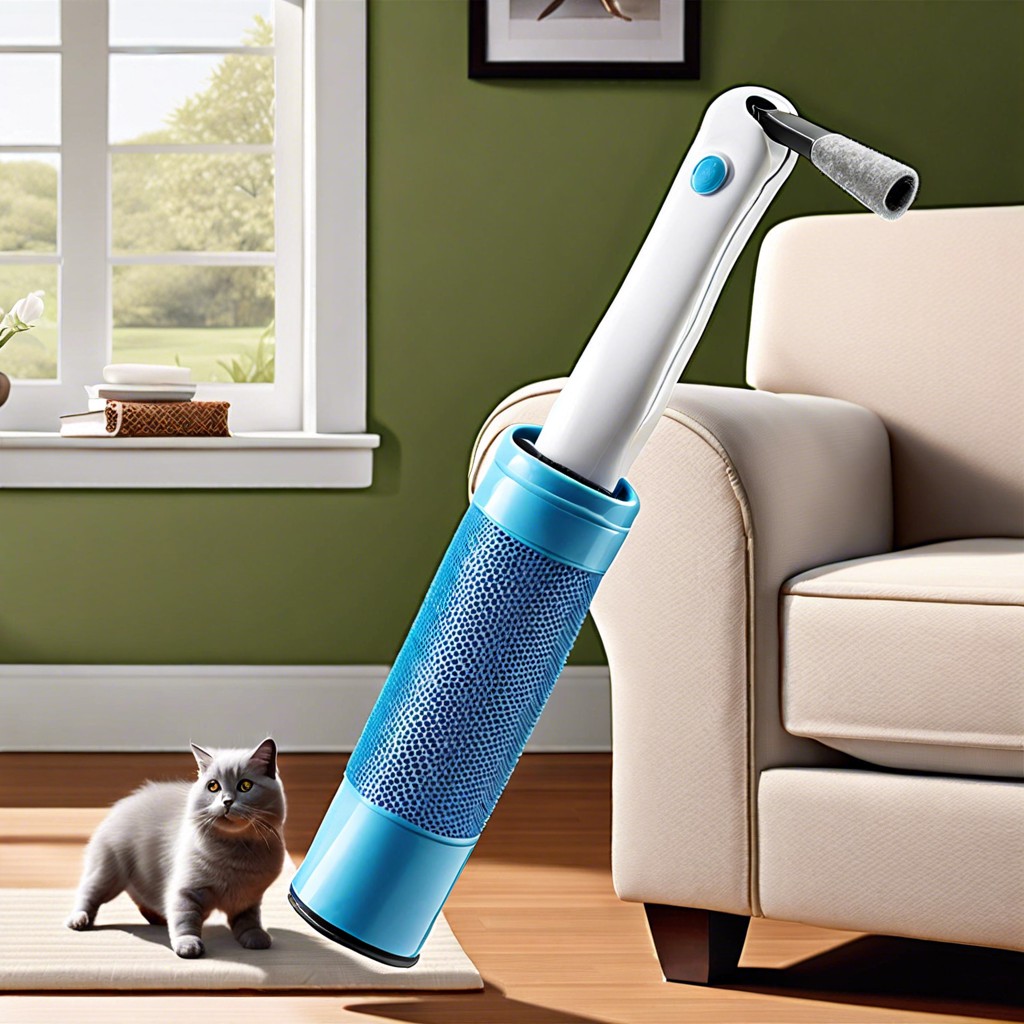Last updated on
Choosing the right air conditioning repair company matters because a well-maintained unit significantly enhances the comfort of your home.
Key takeaways:
- Diagnostic assessments, routine maintenance, repairs, system recharge, part replacements, and full system overhauls.
- Types of air conditioners include central, split-system, portable, window units, ductless mini-split, heat pumps, and evaporative coolers.
- Find a local air conditioner repair company through local recommendations, online directories, business listings, social media, and company websites.
- Indicators that your AC needs repair: unusual noises, weak airflow, inconsistent cooling, bad odors, water leaks, high humidity, and rising energy bills.
- Consider technical know-how, tools, time, warranty, and risks when deciding between DIY or hiring a professional.
Table of Contents
Services Performed By Local Air Conditioner Repair Companies
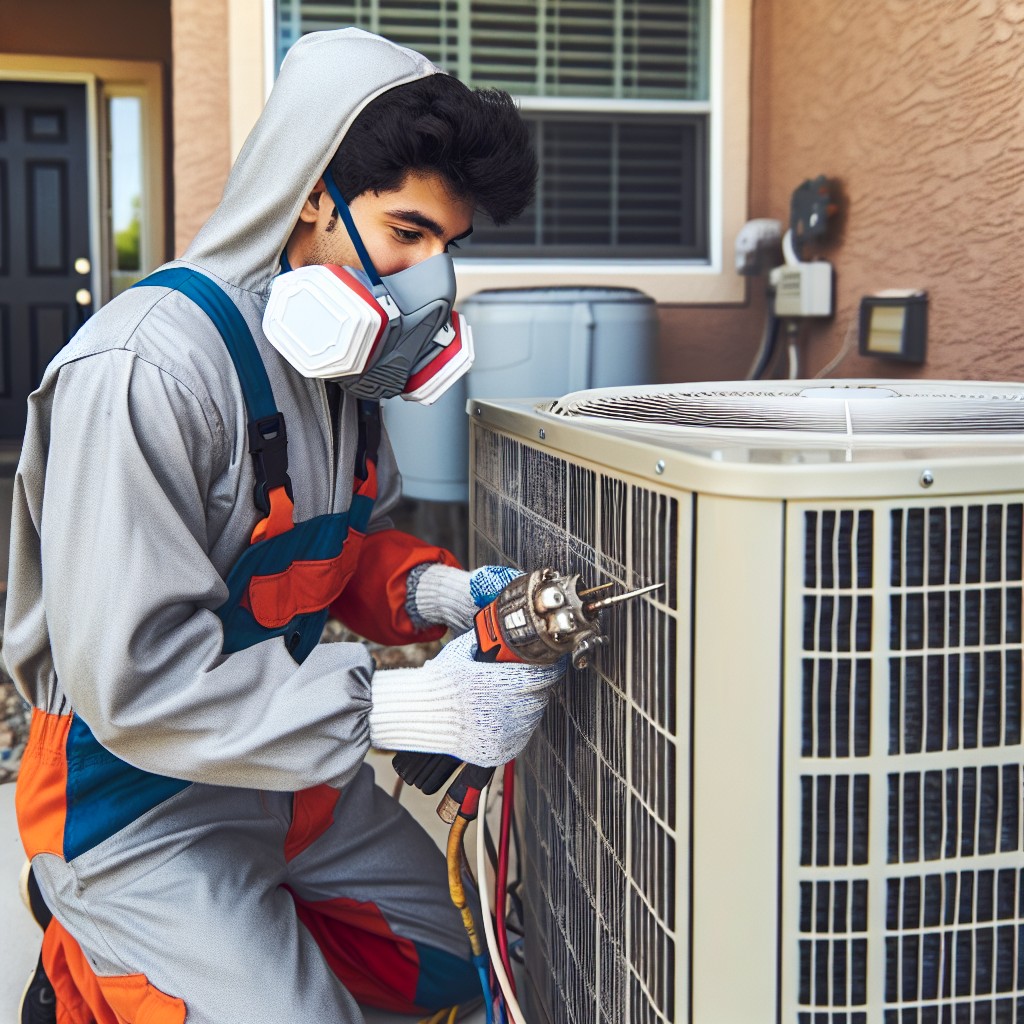
Seasoned technicians at local air conditioner repair companies offer a spectrum of services to ensure your cooling system runs efficiently. These include:
- Diagnostic assessments: Technicians evaluate your system to pinpoint issues affecting performance.
- Routine maintenance: Regular check-ups to clean filters, check refrigerant levels, and inspect electrical connections help prevent future breakdowns.
- Repairs: From fixing leaks to replacing faulty components, skilled professionals address specific malfunctions.
- System recharge: Replenishing the refrigerant when levels drop, which is necessary for effective cooling.
- Part replacements: Substituting worn or broken parts with manufacturer-approved replacements to prolong unit lifespan.
- Full system overhauls: In the event of extensive damage, a complete refurbishment may be necessary to restore functionality.
Each company might offer unique specializations or additional services such as 24/7 emergency callouts or smart thermostat installations, adapting to the evolving needs of your home’s air conditioning system.
Types of Air Conditioners
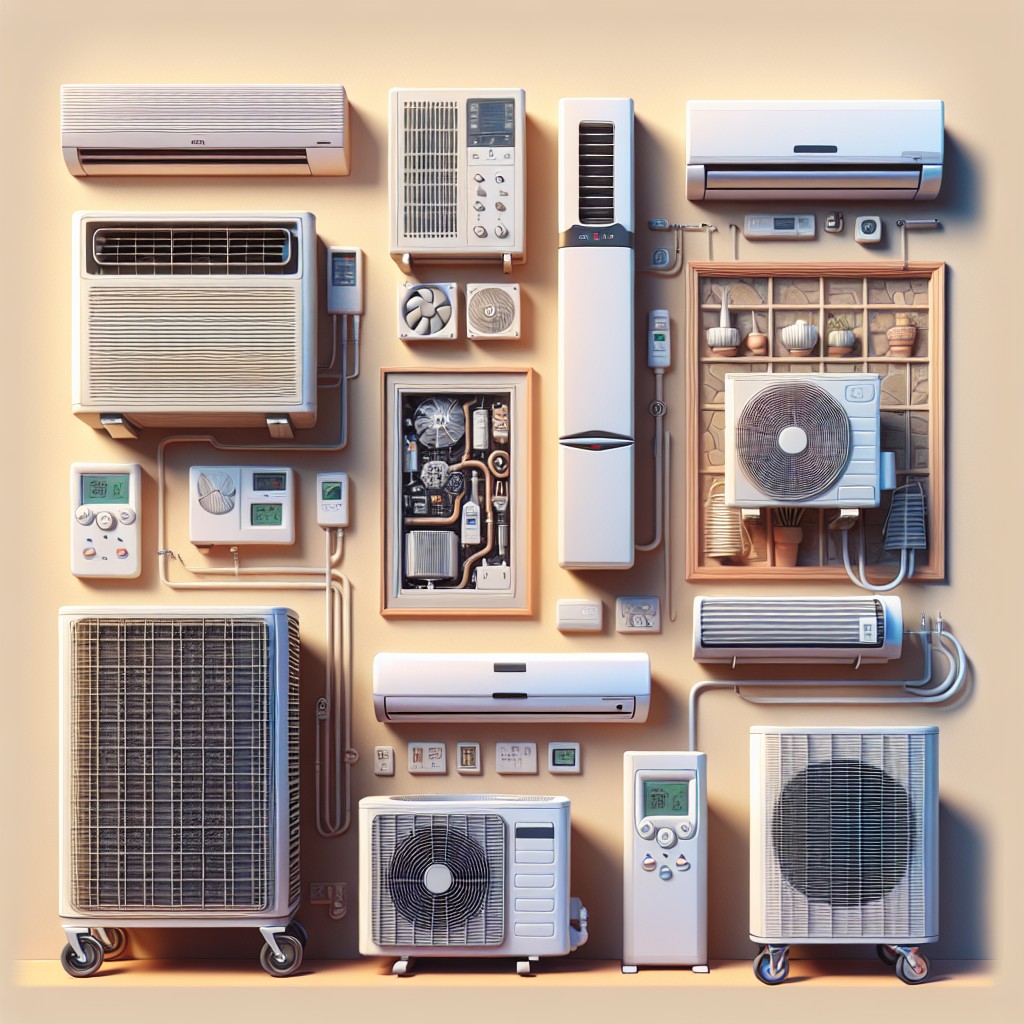
Central air conditioning systems are prevalent in many homes and large buildings, employing a network of ducts to distribute cool air across different rooms and spaces. Split-system units, which divide the compressor and condenser from the air handling unit, offer a solution for homes without ductwork.
Portable air conditioners and window units provide a more flexible, temporary approach to cooling single rooms.
Ductless mini-split systems cater to individual zones without the need for invasive duct installation.
Heat pumps, while primarily used for heating, can also function as air conditioners during warmer months by reversing their operation to remove heat from the interior.
Lastly, evaporative coolers, or swamp coolers, are better suited for arid environments, using water evaporation to lower air temperatures.
Each type has its unique installation requirements, efficiencies, and maintenance needs.
How to Find a Local Air Conditioner Repair Company Near You
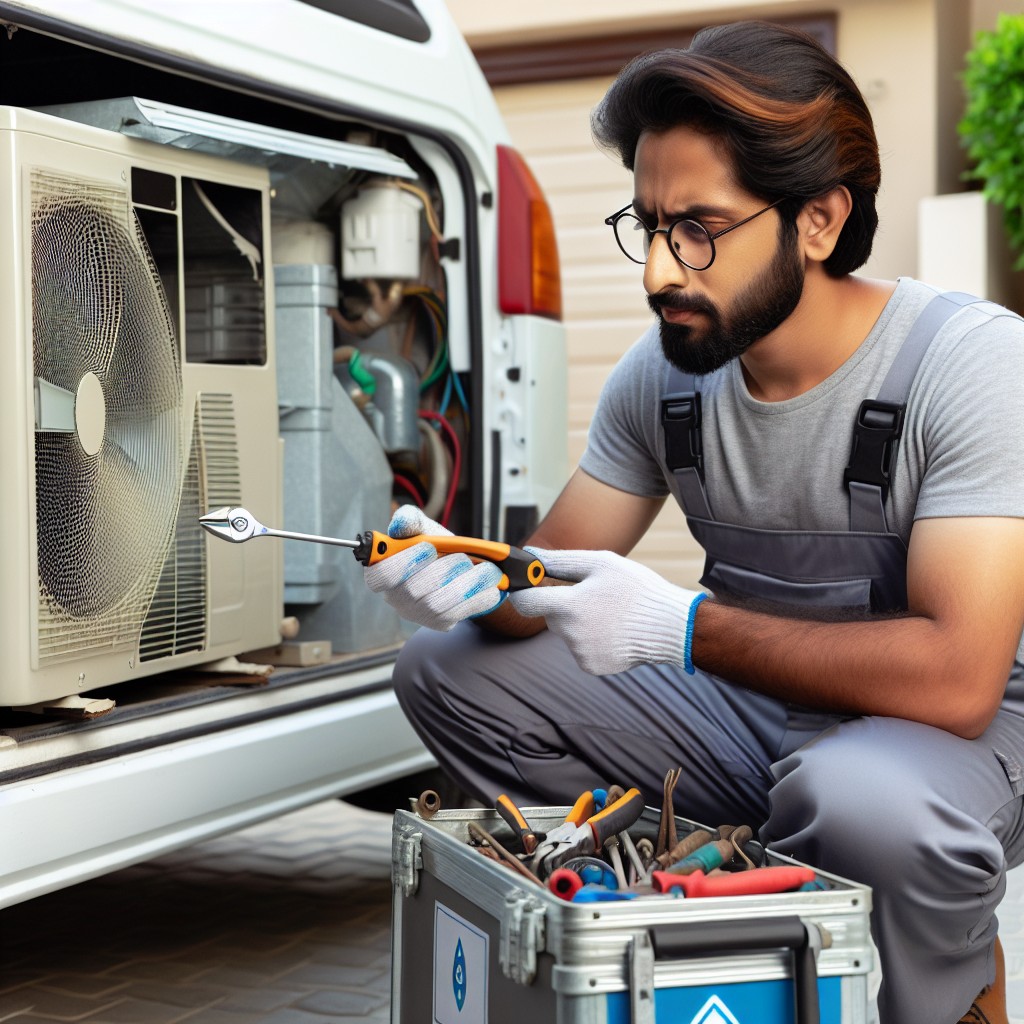
Begin your search by tapping into your local community resources. Ask neighbors, friends, and family for their recommendations based on their experiences. They can provide valuable insights regarding the quality of service and reliability of nearby repair companies.
Utilize online directories and search engines to locate companies within your vicinity. Enter terms such as “air conditioner repair near me” or “local AC service” to generate a list of potential providers. Pay close attention to customer reviews and ratings to gauge the reputation of each company.
Explore local business listings or the local Chamber of Commerce website for a compilation of licensed and accredited businesses. Companies affiliated with professional organizations often meet higher service and ethical standards.
Check social media platforms where local businesses may advertise their services. Look for community groups or forums where residents share experiences and recommendations.
Examine the websites of the companies you are considering. Professional sites should offer a clear outline of services, company background, certifications, and contact information.
Contact a few companies for quotes and service details. Compare their responsiveness, customer service quality, and professionalism, as these are good indicators of their overall service experience.
When to Hire an Air Conditioner Repair Company
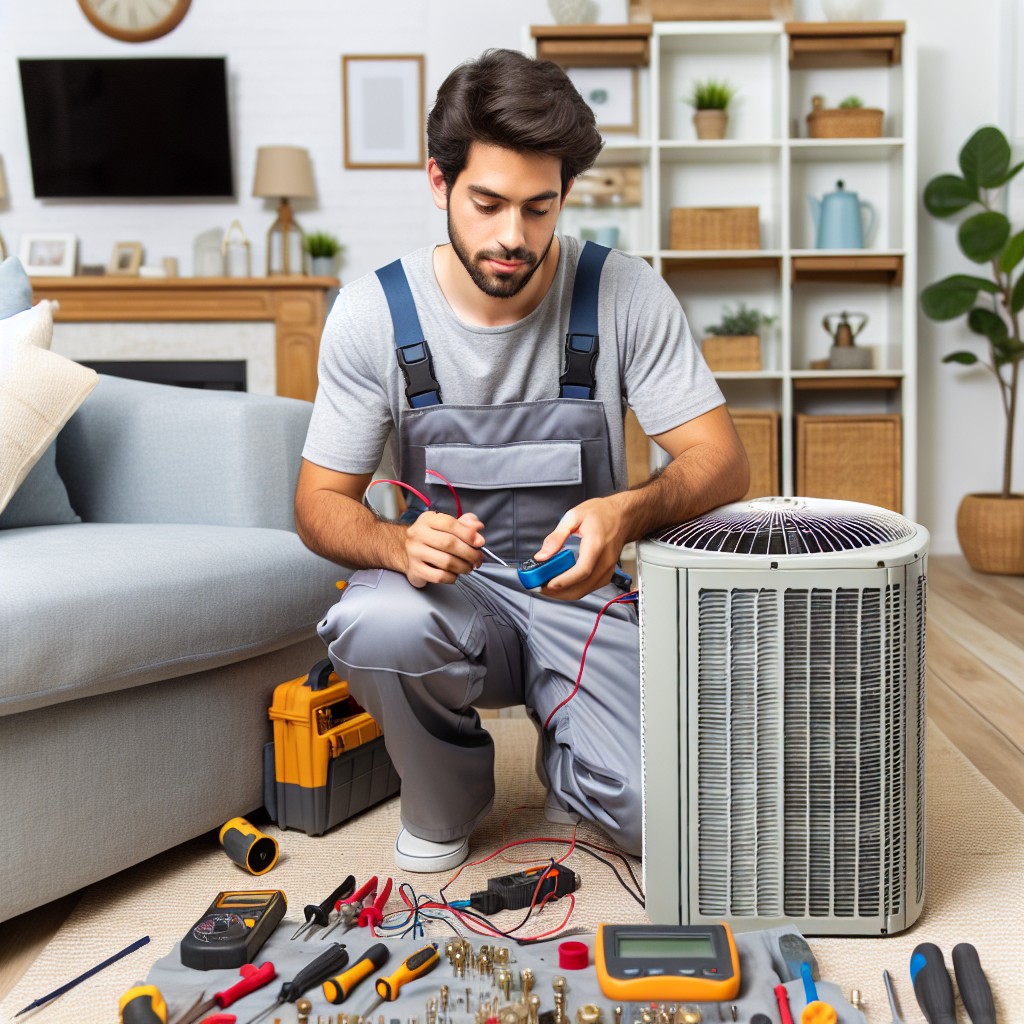
Understanding the right time to call in professionals can save you both discomfort and costly damages. Here are clear indicators that your air conditioning unit needs expert attention:
- Unusual Noises: Sounds like grinding, squealing, or scraping may signal internal issues.
- Weak Airflow: This could be due to a failing compressor or clogged vents and ducts.
- Inconsistent Cooling: If certain rooms are much cooler than others, it might be a sign of a malfunctioning thermostat or distribution system.
- Bad Odors: Musty smells could point towards mold in the ductwork, while a burning odor may indicate a serious electrical problem.
- Water Leaks: Pooled water or an active leak around your AC unit is a sign that the cooling system is not running properly.
- High Humidity: Excessive moisture inside your home suggests that the AC unit is not regulating humidity levels correctly.
- Rising Energy Bills: A sudden spike in your energy bill can be due to an AC system that is working harder to maintain temperatures.
In these instances, delaying could lead to more extensive damage, or even complete system failure, so it’s beneficial to contact a repair service promptly.
DIY Vs. Hiring a Local Air Conditioner Repair Company
Deciding between a do-it-yourself approach and enlisting the expertise of a professional can boil down to a few critical factors. Firstly, consider your technical know-how; minor tasks like filter changes or thermostat troubleshooting can generally be self-taught. However, for complex issues such as refrigerant leaks or electrical faults, specialized training is required to not only effectively resolve the problem but to do so safely.
Moreover, the tools for the job are not to be overlooked. If your toolbox lacks HVAC-specific instruments, this could add to your initial costs and might tip the scale towards hiring a technician who already has the necessary equipment.
Time is also a significant consideration. While learning and attempting repairs can be time-consuming, professionals can often diagnose and fix issues more swiftly due to their experience.
Lastly, reflect on the warranty and potential risks. DIY repairs can void existing warranties, and without the proper certification, you may inadvertently create more expensive issues. Hiring a professional ensures the job is done right the first time, often with the added security of a service guarantee.
Benefits of Hiring a Local Air Conditioner Repair Company
Selecting a local air conditioner repair company comes with several advantages:
- Quick Response Times: Proximity means shorter travel distances for technicians, leading to faster service for urgent repairs.
- Personalized Service: Local companies often provide a more personalized touch, understanding the community’s specific needs and climate considerations.
- Familiarity with Local Regulations: A local company is more likely to be up-to-date with regional building codes and disposal regulations, ensuring compliance during repairs or installations.
- Building a Relationship: Regularly using the same local service can lead to a dependable relationship, potentially resulting in priority service and discounts.
- Support Local Economy: Choosing a local service contributes to the local economy, supporting small businesses and job creation in your area.
- Knowledge of Common Local Issues: Technicians from the area may have a better grasp of recurring problems in the locality due to common weather patterns or infrastructure.
- Convenience for Scheduling: Scheduling service calls can be more flexible when the provider is nearby, offering convenience for routine maintenance or follow-up visits.
Questions to Ask a Local Air Conditioner Repair Company
When reaching out to an air conditioning repair company, it’s important to gather essential information to ensure quality service. Start by inquiring about their experience: ask how many years they’ve been operating and what specific makes and models they typically service. Request details on their licensing and insurance to confirm legitimacy and protection against potential damage.
Discuss their approach to service quotes: whether they offer a free estimate and if this estimate is provided after an in-person evaluation. It’s also useful to understand their availability – can they accommodate emergency repairs, and what’s the average response time? Moreover, inquire about the warranty they provide on parts and labor to gauge post-repair support.
Finally, ask for customer references or check online reviews to get a sense of their reputation and customer satisfaction. Addressing these points helps in selecting a reliable and skilled professional for your air conditioner repair needs.
Common Air Conditioner Problems
Understanding the issues that often plague air conditioning systems enables timely intervention and can prevent costlier repairs down the line. Here are a few prevalent problems:
1. Refrigerant Leaks: The lifeblood of an air conditioner, refrigerant, when leaking, leads to decreased cooling power and increased energy costs. Technicians can seal these leaks and recharge the refrigerant to optimal levels.
2. Drainage Issues: Air conditioners also dehumidify as they cool; however, improper drainage can result in water backflow, leading to mold growth and other water-related damage.
3. Faulty Fans: With a fan to blow indoor air over the evaporator coil and another to expel absorbed heat outside, any malfunction can lead to poor airflow and eventually system failure.
4. Frozen Evaporator Coils: These coils need warm air to operate correctly. Insufficient airflow can make them too cold, leading to ice buildup and impaired cooling capacity.
5. Worn Contactor: The contactor starts the motors and compressor. When it wears out, electrical connections become unreliable, hindering the system’s performance.
6. Dirty Condenser Coils: Located outside the home, these can become dirty due to the elements, reducing the air conditioner’s ability to expel heat.
Recognizing these issues early on and seeking professional help is crucial in maintaining an efficient and long-lasting air conditioning system.
Should I Repair or Replace My Air Conditioner?
Deciding between repairing and replacing your air conditioner hinges on several factors that can impact your comfort and finances. Here are key considerations:
- Age of the Unit: Air conditioners typically last 10 to 15 years. If your unit is nearing this age or older, it might be more cost-effective to invest in a new, energy-efficient model.
- Frequency of Repairs: Frequent breakdowns not only contribute to higher cumulative repair costs but also signal that your unit may be on its last legs.
- Energy Bills: An increase in energy bills can indicate that your AC is losing efficiency. A new model with a higher SEER rating will use less energy and save you money in the long run.
- Overall Comfort: If your AC is struggling to maintain a consistent temperature or humidity levels, a replacement could provide a more comfortable home environment.
- R-22 Freon Usage: Since R-22 Freon is being phased out due to environmental concerns, an AC using it will become increasingly expensive to maintain and recharge.
Consider these points in the context of your circumstances to make an informed decision on whether to repair or replace your air conditioning unit.
Preventative Maintenance for Your Air Conditioner
Routine preventative maintenance ensures optimal performance and longevity for your air conditioning unit. Annually servicing your system, typically in the spring, prepares it for the demanding summer season. Key tasks include:
- Filter Replacement: Dirty filters impede airflow and reduce efficiency. Replace or clean filters every 1-3 months to improve air quality and performance.
- Coil Cleaning: Over time, the evaporator and condenser coils collect dust. Annual cleaning prevents insulation and maintains efficiency.
- Checking Refrigerant Levels: Proper refrigerant levels are crucial for smooth operation. Technicians can identify leaks and recharge the system if necessary.
- Inspecting Thermostat Settings: Ensure your thermostat is accurately calibrated and functioning correctly for comfortable, energy-efficient operation.
- Clearing Drainage Lines: Clogged drain channels can cause excess moisture, potentially leading to water damage. A clear line maintains humidity levels and prevents mold growth.
- Inspecting and Tightening Electrical Connections: Loose connections may cause unsafe operation or reduce the life of the unit. An electrician can secure connections and assess motor operation.
- Lubricating Moving Parts: Lack of lubrication causes friction in motors and increases electricity use. Proper lubrication prevents wear and tear.
By adhering to these maintenance points, you can increase efficiency, reduce repair costs, and extend the life of your system.



